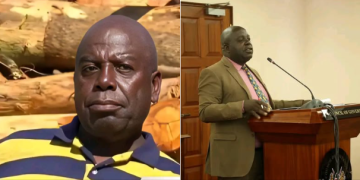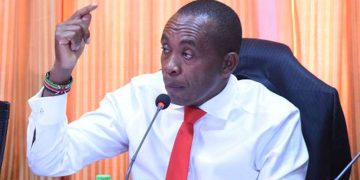Ethics and Anti-Corruption Commission (EACC) has released a report of an inquiry into the fraudulent acquisition of public funds by officials of the National Museums of Kenya through salaries and gratuity paid to ghost workers.
In a Gazette Notice dated Friday, August 11, EACC revealed that they commenced investigations after Kenyans of Goodwill reported that officers at the Norganisation had added ghost workers to the payroll.
According to the whistleblowers, a number of ghost workers were included in the salary payment system between May 2016 and April 2022, earning nearly Ksh100,000 each.
“Investigations established that the NMK payroll had 105 ghost workers included between the years 2016 and 2022. The ghost workers were paid a gross salary ranging between Ksh88,000 and Ksh95,000 and gratuity at the rate of 31 per cent of the annual basic pay.
“Investigations further established that the ghost workers would retain a percentage of the salaries received and remit the balance to officers at the National Museums of Kenya,” the EACC report read in parts.
Investigators established that the rogue managers had added 105 ghost workers who were paid cumulative totals of Ksh491,405,413 as salaries for thaat period.
“The ghost workers would be given a token of appreciation of between Ksh100,000.00 and Ksh200,000.00 from the loan money,” read the EACC report in parts.
EACC also disclosed that the managers obtained loans at a local bank under the disguise of ghost workers, forcing the financial institution to raise the alarm.
The report that was forwarded to the Office of the Directorate of Public Prosecution (DPP) on May 5 recommended the suspects be charged with six counts of unlawful acquisition of public property under Section 48 of the Anti-Corruption and Economic Crimes Act.
NMK officials will also be charged with two counts of conspiracy to commit an offence of economic crime contrary to section 47A (3) as read with section 48 of Anti-Corruption and Economic Crimes Act No.3 of 2003 and two counts of abuse of office contrary to section 46.
EACC further asked the ODPP to consider two counts of acquisition of proceeds of crime and one count of money laundering contrary to section 16 of the Proceeds of Crime and Anti-Money Laundering Act 2009.
“Additionally, they are supposed to face two counts of Financial Misconduct under section 199 of the Public Finance Management Act, 2012,” the EACC report read in parts.










































